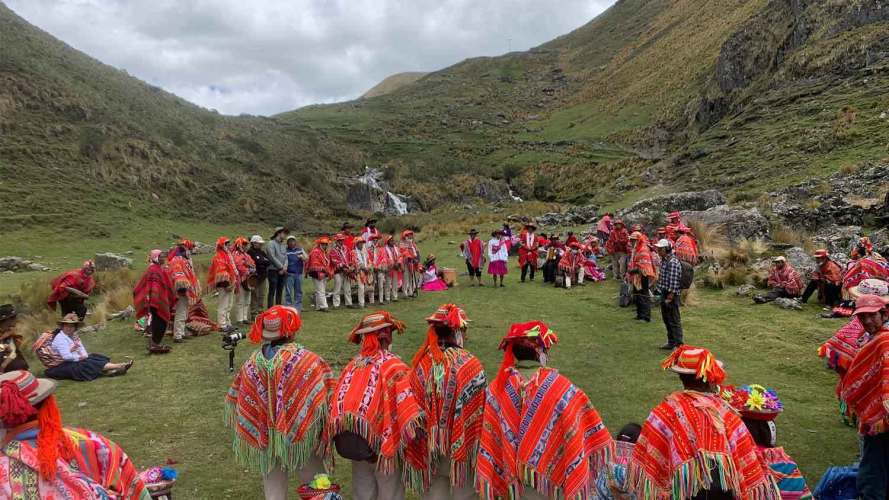Ecopreneurs Are Using Technology to Reforest the Andes Mountains — One Tree at a Time



Acción Andina works with indigenous communities to protect and restore the native forest, wetlands, and ecosystems of the Andes highlands.
Somewhere near Patacanch, Peru — It’s hard to tell where the clouds begin and end on this mountainside, 15,000 feet high in the Andes and miles from the nearest town. There’s no cell service. No internet. But there’s no time for that anyway when you’re trying to keep up with a hundred Quechuans sprinting up a cliff, bags of tree saplings tied to their backs.
It feels about as far away from technology as you can get, but it is precisely technology — and a lot of lung power and foot speed — that is powering today’s reforestation work.
Constantino “Tino” Aucca and Florent Kaiser, the duo at the helm of Acción Andina, are working with the local indigenous community as part of a multi-country effort to reforest the Andes mountain range. Technology helps them determine where, how, and when these trees can be grown. And it helps them bring their story to the wider world, leading to more support for this vital work. Planting more Polylepis trees helps absorb water into the soil and streams. Ultimately, it provides more water for the local indigenous communities that call the highlands home.
Their work is featured in the latest episode of “Ecopreneurs,” a series on the Salesforce+ streaming service that highlights climate activists and the work they’re doing to save the planet. From replenishing coastal ecosystems to outfitting buildings with clean energy, ecopreneurs are developing innovative solutions for some of our most pressing environmental issues.
“Deforestation is winning the battle. We are losing a lot of glaciers,” Aucca said. “But when we put trees along the Andes, we are helping to secure the water balance and preventing climate change.”
Aucca and the team at Acción Andina, a nonprofit that restores native forest ecosystems in the Andes, supports these indigenous highland communities and their centuries-old way of life.
“[For] all these communities, the main economic activity is agriculture. If you save the forest, you save the wetlands also. Acción Andina is protecting those ecosystems. We are going to save water, sequester carbon, [and] provide more biodiversity.”
Soon after Aucca founded Acción Andina, he realized he needed to add business acumen to scale his vision. He recruited Florent Kaiser, CEO of a Virginia-based reforestation nonprofit called Global Forest Generation.
When Kaiser saw the work Aucca was doing, he volunteered to partner with Acción Andina to increase the scale of its reforestation work and the benefits it provides to local communities.
“There lie incredible opportunities in ecosystem restoration,” Kaiser said. “Businesses bring technology. Businesses bring smart people. Businesses bring ecopreneurs.”
Kaiser and Aucca integrate technology to monitor soil data and connect remote communities across vast distances.
“Technology is extremely important for large-scale restoration efforts involving tens of thousands of people,” Kaiser said. “It lets us gather and link data from the field and make our systems speak to each other.”

At nearly three miles above sea level, Aucca and Kaiser consult with the indigenous community leaders on where to plant the trees. There might not be a laptop in sight, but Acción Andina has already mapped out what areas to focus on this week and where the trees are most needed and most likely to grow. In a matter of hours, the indigenous farmers have planted enough trees to cover a mountainside the size of two football fields.
“For us, water is a source of life,” said Justina Quispe Taco, who lives in the nearby community of Rumira Sondormayo. “That is why the reforestation and planting of trees here is important. In our town, there is no other institution like Acción Andina that helps us in this way.”
Watch the entire episode on Acción Andina’s work in the Andes. And, read about other ecopreneurs using technology to solve the climate crisis.
With our planet in peril everyone must rise to the challenge and find solutions
See how business-savvy activists use innovative solutions to help fight climate change, watch our Salesforce+ series, “Ecopreneurs.”




























